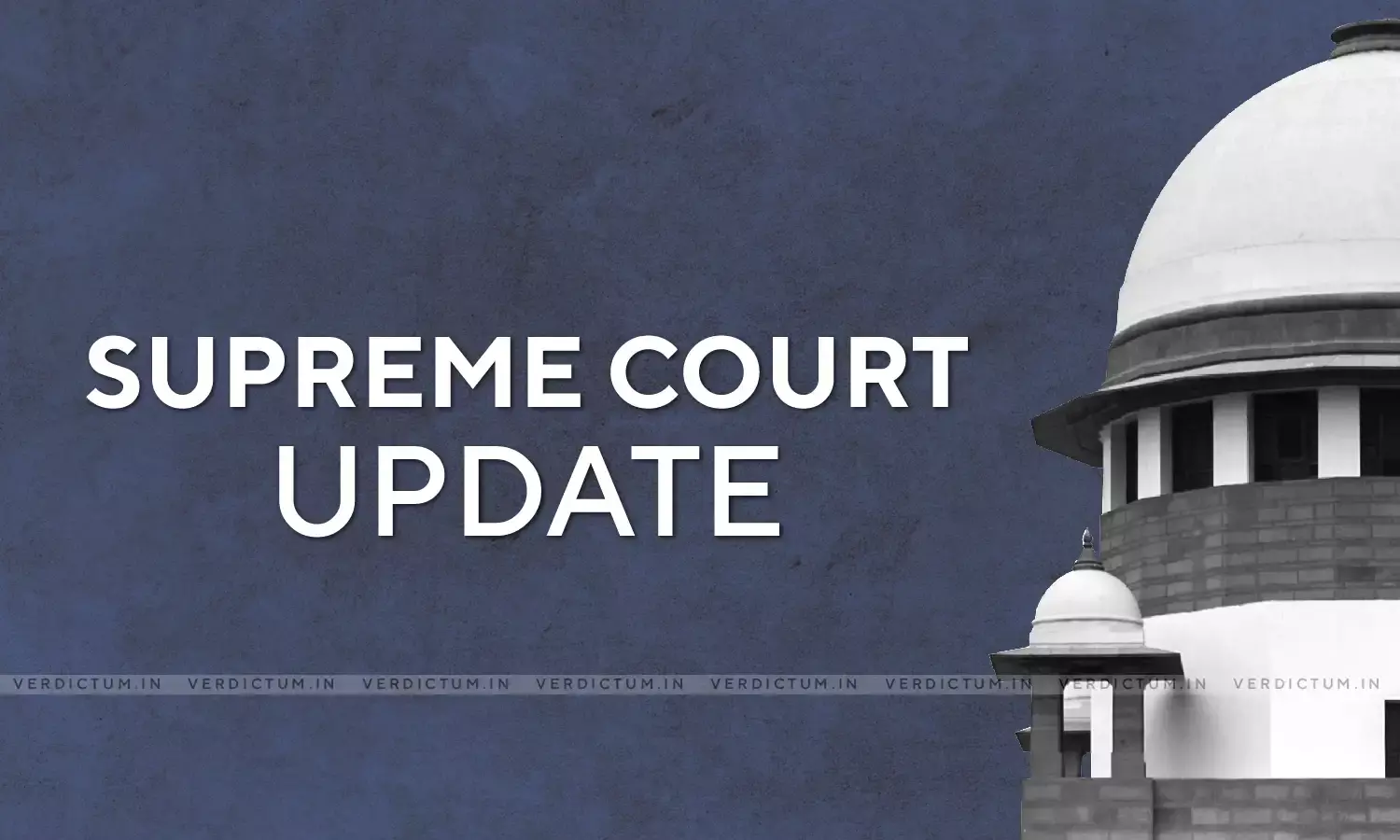Most Important Ingredient Of Sexual Assault Is Sexual Intent And Not Skin-to-Skin Contact: Supreme Quashes Controversial Bombay HC Judgment

While holding that the most important ingredient constituting sexual assault is sexual intent and not skin-to-skin contact with the child under the POCSO Act, a Three-Judge Bench of the Supreme Court today set aside the controversial judgment delivered by the Bombay High Court.
The Judgment pronounced by a Bench of Justice UU Trivedi, Justice Ravindra Bhat and Justice Bela Trivedi holds that the act of touching the sexual part of the body or any other act involving physical contact, if done with sexual intent, would amount to sexual assault within the meaning of section 7 of the POCSO Act. The Court also said that the purpose of the law cannot be to allow the offender to sneak out of the meshes of the law.
"We have held that when the legislature has expressed clear intention, the courts cannot manufacture ambiguity in the provision. It is right that courts cannot be overzealous in searching ambiguity," the Bench stated.
The Judgment delivered by Justice Pushpa Ganediwala of the Bombay High Court (Nagpur Bench) had held that groping a minor's breast without skin-to-skin contact cannot be termed as sexual assault as defined under the POCSO Act. The Court had held that since the man groped the child without removing her clothes, the offence cannot be termed as sexual assault but it does constitute the offence of outraging a woman's modesty under IPC section 354. The man was then acquitted under POCSO Act.
Justice Bhat delivered a separate concurring judgment.
"The most important ingredient for constituting the offence of sexual assault is sexual intent and not skin-to-skin contact with the child. Construction of a rule should give effect to the rule rather than destroying it. Any narrow interpretation of the provision which would defeat its object cannot be accepted. The intention of the legislature cannot be given effect unless wider interpretation is given," the Bench observed.
The Apex Court commented that this is the first time that the Attorney General had filed an appeal on the criminal side. The Apex Court also stated that this time a brother and sister have also opposed each other looking to the fact that Senior advocate Siddharth Luthra appeared for the convict in the case as an Amicus curiae, while his sister, Senior Advocate Geeta Luthra, appeared for the National Commission for Women.
Attorney General K K Venugopal had earlier told the Court that the controversial verdict would set a "dangerous and outrageous precedent" and needed to be reversed.
The Court, which was hearing separate appeals of the Attorney General and the National Commission for Women (NCW), had on January 27 stayed the order which had acquitted a man under the Protection of Children from Sexual Offences (POCSO) Act saying groping a minor's breast without skin-to-skin contact cannot be termed as sexual assault. Two judgments were passed by Justice Pushpa Ganediwala of the Bombay High Court (Nagpur Bench).
The High Court had modified the order of a Sessions Court, which had sentenced a 39-year-old man to three years of imprisonment for sexually assaulting a 12-year-old girl.
As per the prosecution and the minor victim's testimony in Court, in December 2016, the accused had taken the girl to his house in Nagpur under the pretext of giving her something to eat. Once there, he groped her breast and attempted to remove her clothes. However, since he groped her without removing her clothes, the offence cannot be termed as sexual assault and, instead, constitutes the offence of outraging a woman's modesty under IPC section 354, the High Court had held.
The Sessions Court had sentenced the man to three years of imprisonment for the offences under the POCSO Act as also under IPC Section 354. The sentences were to run concurrently. The High Court, however, acquitted him under the POCSO Act while upholding his conviction under IPC Section 354.
The POCSO Act defines thus sexual assault as when someone "with sexual intent touches the vagina, penis, anus or breast of the child or makes the child touch the vagina, penis, anus or breast of such person or any other person, or does any other act with sexual intent which involves physical contact without penetration is said to commit sexual assault".
The High Court had held that this "physical contact" mentioned in the definition of sexual assault must be skin-to-skin or direct physical contact.
With PTI inputs

